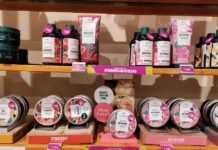The Flexible Packaging Association (FPA) in the US has brought out an interesting report titled ‘Perspectives on the Meaning of Sustainability in Flexible Packaging’ in March 2019. The report integrates the findings of two studies commissioned by the FPA in 2018 to better understand perspectives on sustainability and packaging among both consumers and brand owners.
The first study was carried out by Packaging World magazine in June 2018; it collected insights from brand owners surveyed online. The second study was carried out by The Harris Poll in July 2018 and sought insights from consumers surveyed online.
The summary of the findings was as follows:
Brand owners know consumers care about sustainability in general and particularly about sustainable materials but many do not think consumers care about sustainable processes. The majority of brand owners believe that consumers care about the sustainability aspects of packaging materials; however, brand owners are split about whether or not consumers care about the sustainability aspects of packaging processes.
Consumers see sustainability as important but specific lifecycle attributes of sustainability are not always top-of-mind. Sustainable manufacturing processes and and transportation efficiency, for example, are less often associated with sustainability than with aspects that are more obvious to consumers such as recycling. Consumers are also more likely to believe glass and corrugated packaging is more sustainable than flexible packaging, perhaps due to recycling benefits that are more obvious to consumers.
From a sustainability perspective, millennials present the greatest opportunity for flexible packaging companies. Though not all consumers seek out sustainable packaging benefits or are willing to pay more for them, millennials are more likely than other generations to do either or both. They are also more likely to view certain ‘behind the scenes’ attributes such as transportation efficiency and energy efficiency as important.
Brand owners surveyed say that sustainability is a priority for their companies, and packaging plays a key role in sustainability efforts. Barriers to increasing sustainability efforts relate to price and quality and brand owners expect bio-based packaging and biodegradable packaging to drive sustainable packaging trends in the future.
To help communicate the study findings, FPA has developed the Sustainability Outreach and Consumer Conversations eBook to summarize and highlight key take-aways from the study. The eBook is available from FPA’s website www.flexpack.org.
Some of the more detailed findings are given below:
Consumers are most likely to associate sustainability with familiar terms like ‘renewable’ (59%) and ‘recyclable’(56%); some recognize commercial terms like ‘transportation efficiency’ (24%) and ‘circular economy’ (3%). While 24% of consumers believe transportation efficiency defines sustainability, 81% think it is only somewhat important.
There is a wide disparity when it comes to consumers’ perception of sustainability. While 83% of consumers say they think they understand the meaning of sustainability, brand owners are somewhat skeptical – they think only 60% of consumers understand the meaning of sustainability.
The beneficial lifecycle impacts and sustainability advantages of flexible packaging are more likely to resonate with consumers in the 18-44 age bracket. This segment represents the next wave of buying power in the US. The number of millennials (18-44) who believe in flexible packaging is 43% whereas only 31% of the older generation (45+) believe in it. Surprisingly, the number of people who believe glass packaging is more sustainable is 62% (45+) and 51% (18-44) and there are 59% (45+) and 41% (18-44) who plump for corrugated packaging as being more sustainable.











